Is Android a dangerous monopoly?
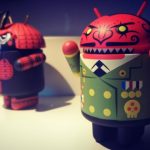
I can't confirm Bloomberg's report that the the U.S. Federal Trade Commission and Justice Department allegedly are beginning a joint investigation into Google's Android licensing agreements. But I can explain what it means. Striping to the bones, from an antitrust perspective, there are two pivot points: Monopoly position and exclusive contracts. Then there is the broader regulatory agenda: Correcting (or preventing future) consumer harm.
Globally, Android is unquestionably a monopoly in the market for smartphones. However, its dominance in the United States is comparably muted by competition from iPhone. Based on smartphone subscribers, Android's share was 51.4 percent for the three months ending July 31, 2015, according to comScore. iOS ranked second with 44.2 percent. By cell phone manufacturer, Apple leads the market, with the same share, followed by Samsung (27.3 percent). Android is leading but declining—down 0.8 points, while iOS is up 1.1 points, from April to July.
OK, Google, make some Apple sauce

In my last post, I joke about the other five people who also bought Nexus 6 to make a broader point. Apple laps up positive PR—and rubs Android's nose in stinky sidewalk dog poop—by touting rapid iOS 9 adoption. Based solely on devices accessing the iTunes App Store, the number is 52 percent as of September 19. By the same measure, as of September 7, from Google Play: 20 percent of Androids run the newest version, Lollipop. iOS 9 released last week, and Android 5 arrived last year. Ouch!
Google shouldn't let the comparison stop there. The company should release Lollipop adoption data selectively, for stock Android devices like Nexus 6. That makes the comparisons to iOS more equal, being devices for which both companies control updates. Apples to, ah, Apple is more appropriate and responsive public relations management.
How bad is iOS 9 ad blocking for Internet advertising?

On Sept. 16, 2015, Apple released iOS 9, which enables users of iPad and iPhone to disable ads. The company claims the capability improves the overall user experience. As someone covering the tech industry for more than two decades, I perceive it as something else, too: Competitive assault against Google and means of pushing publishers to iOS 9's new News app. There is nothing friendly about Apple's maneuver. It is aggressive and tactical. But does it really matter?
Stated simply: More than 90 percent of Google revenue comes from contextual and search-related advertising. Apple derives about the same figure from selling devices and supporting services. At the same time, mobile is the future of Internet advertising and the battleground where the two meet. The entities' respective mobile platforms, Android and iOS, long ago put the tech titans on a collision course. Conceptually, what Apple can't gain from iPad and iPhone sales, it can take by shaking pillars supporting its rival's business.
5 things I don't like about Apple Watch
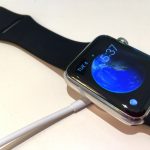
About two weeks ago, I shared how Apple Watch tickles my fancy. From likes, we go to dislikes, and keeping with the other I purposely limit the number to five. Quick recap: I bought the aluminum model on June 18, 2015 from the local Apple Store. Seven days later, I exchanged for the stainless steel variant. Except to charge or to shower, I've worn it constantly since.
Broadly, my feelings about the smartwatch are mixed. The delivered benefits are excellent, but they aren't enough to justify the lofty price. If not for using MacBook Pro and iPhone 6 Plus this summer, Android Wear and iOS incompatibilities, or the promise of watchOS 2 coming early autumn, I would not have purchased the device. I'm not dissatisfied with Apple Watch, but want more from it. As I explained on July 18, the measure of success or failure isn't sales but returns. I kept mine. How many early buyers didn't?
Apple hits Google where it hurts

I have some advice for the European Union Competition Commission: Lay off. You don't need to reign in the Google monopoly. Apple will correct the market around search and mobile. That's one of two related takeaways from Monday's WWDC 2015 keynote. iOS 9 and OS X El Capitan up Apple's push into search and proactively-delivered information in big ways. That is if delivery is as good as the company promises.
The other takeaway harkens back to what I told you last week about Tim Cook's piracy rant against unnamed Facebook and Google alongside the friggin U.S. government -- plural if thinking beyond the Feds: It's BS marketing. Apple prepares a major competitive assault against Big G, hitting where damage can be severe: Perception and profits. I cannot overstate Google's vulnerability, which ironically is where the search and information giant exploited Microsoft during this Century.
Tim Cook is an opportunist
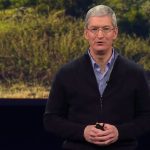
Nine years ago, a NPR interviewer asked me about Google and other U.S. companies censoring search results in China. The question was one of morality -- to which I gave answer she didn't expect. That response, or my recollection of it, is appropriate for rather ridiculous and self-serving statements that Apple CEO Tim Cook reportedly made two days ago.
"We believe that people have a fundamental right to privacy", Cook said, Matthew Panzarino reports for TechCrunch. "The American people demand it, the constitution demands it, morality demands it". Oh? What is moral? The answer I gave NPR in 2006 applies: There is no moral high ground in business. The high ground is quagmire, because all public companies -- Apple surely among them -- share a single, moral objective: Make profits for stockholders. Plain, pure, and simple.
Chromebook Pixel LS is nearly perfect [Review]
Mark the date with an alarm. Around May 28, 2015, sellers likely will fill eBay and Craigslist with spanking new Chromebook Pixels, available for bargain prices—if anything less than $999 or $1,299 could be considered a deal. Google's developer conference commences that day, when I expect many attendees will receive and quickly dispatch shiny, new laptops. Big G gave away the pricey Pixel two years ago, and it's good guess will do so again. Smart developers will keep the machines; many will not. Dumb move, but who am I to judge, eh? Pixel rests at the precipice of future computing, for those open-minded enough to welcome it. They are few.
If you are among those who get the Chromebook concept, who thinks about purchasing the laptop, but waffles indecision, watch for short-term selling prices that could meet what your sensibilities and spending budget can tolerate. It's good background for me to finally review the higher-end of the two costliest Chromebook configurations. My primer can help you decide whether or not to bother, either for full price now or for the chance of less later. Why wait? I wouldn't and didn't. I received my Pixel in March, on Friday the 13th, ordered two days earlier from Google. I use no other computer. It's more than my primary PC and could be yours, too.
Nexus 6 is amazing [Review]
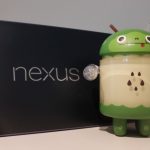
When isn't a cell phone too big? The Motorola-made, Google-branded phablet answers that question for me, and may very well for you. From Samsung's introduction of the original Note, I scoffed at large-screen smartphones—and, honestly, the seemingly stereotypical gadget geeks using them. But big is better, and my arrogant attitude about phablets and the people buying them was unwarranted.
Simply stated: Nexus 6 is the best handset I have ever used. The experience is so fresh and delightful, the emotional reaction reminds of using the original iPhone that I purchased on launch day in June 2007. N6 shatters my negative preconception about phablets, particularly unwieldiness when used daily. That said, I made some lifestyle changes, including choice of clothing, to accommodate the mobile's massive size.
13 things you should know about Chromebook Pixel 2015
The second of three Friday 13ths was definitely a lucky day. Near Noon, FedEx delivered the Chromebox Pixel 2015, which I set up late afternoon. Nearly 24 hours later, time is right for some immediate reactions before my eventual full review. My perspective presented here is two-fold: General first impressions for anyone combined with what are the benefits for existing Pixel owners. For many of the latter group, I say this: Consider your budget and needs wisely. What you've got may be more than good enough.
For everyone else, I will contradict the majority of reviewers, and even Google. Pixel is not a computer for developers or limited number of laptop users. Anyone shopping for a quality notebook that will last years should consider the new Chromebook, most certainly if looking at any MacBook model or Windows PC, such as Surface Pro 3. Everyone living the Google lifestyle who can afford a laptop in this price range should consider nothing else. Now let's get to the drill down, point by point. There are 13, for no other reason than my receiving the laptop on the unluckiest day.
Did Google taint 12-inch MacBook news coverage?

Bias in the media is inevitable, and any news gatherer who denies this fact is a liar. Companies seek favor or to influence in countless ways. It's the nature of the beast, which cannot be tamed. So I wonder how Chromebook Pixel embargoes impacted reporting about Apple's newest laptop. If so, Google pulled off one hell of a marketing coup.
The search and information giant provided many tech blogs and news sites with the new Pixel about a week before the laptop launched yesterday and the first reviews posted—that was also days before Apple's well-publicized media event where a new MacBook was rumored. Both computers share something in common: USB Type-C, which is bleeding-edge tech. The connector received much media attention on Monday and Tuesday two ways: Buzz about it being the next great thing, and MacBook having but one port (Pixel has two, and others).
2015 is year of the Chromebook
Last year, I disputed ridiculous assertions, based on widely misquoted NPD data, that 2014 would be "year of the Chromebook". It wasn't. But that designation does belong to 2015—at least in the United States. Measures: Number of new models; adoption by K-12 schools; and overall sales, which are surprisingly strong. Read carefully the next paragraph.
Through U.S. commercial channels and retail, Chromebooks accounted for 14 percent of laptop sales last year, according to NPD, which released data at my request. That's up from 8 percent in 2013. Commercial channels, largely to educational institutions, accounted for about two-thirds of 2014 Chromebook sold. Year over year, sales soared by 85 percent, and the trajectory continues to climb.
I was wrong about the smartwatch being a dumb idea
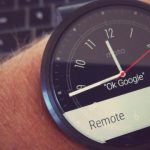
Over the holiday weekend, I started using the Moto 360, which user experience is way better than anticipated. For all the nutcases calling Apple Watch innovative and revolutionary—without there even being a device for them to test—Android Wear is, ah, timely. Google gives great utility that will be difficult for the fruit-logo company to match. Reasons are simple: Context, search, sync, UI design, and Google Now.
I resisted the smartwatch concept for having been there before. Few of the gadget geeks gushing about wearables are old enough to remember Microsoft SPOT. Mid-last decade, the company partnered with real watchmakers (Fossil, Suunto, and Swatch); the devices were as much jewelry as functional timepieces; FM radio delivered appointments, news, weather, and other alerts independent of cell phones; and battery life lasted three days or more (which wasn't enough). By these measures, SPOT watches were so much more and still failed. Hence, these are reasons why in past analyses I called the decade-later attempt dumb. But I was wrong.
Google has lost control of Apple

Maybe disposing of Android creator Andy Rubin was dumb. Maybe buying into the "Year of Chromebook" meme was dumber. Maybe making strategic decisions in anticipation of European Union trustbusters was even dumber. Maybe selling Motorola was dumbest. Take your pick, or add to the list, because all of the above apply. Google has squandered what should be in 2015 platform riches, ceding to Apple what shouldn't have been.
In October 2009, I asserted (before anyone else) that "iPhone cannot win the smartphone wars", as the stage was set for Android and iOS to mimic the platform battle between Windows and Macs during the PC era. By the large number of Android devices shipped that analysis is true today. But Apple's mobile platform wins the mindshare—and by other measures profit-share—wars, something Google could have, and should have, easily prevented. Time is overdue for course correction that requires smarts, not dumb-ass thinking.
Google can count many blessings this Thanksgiving
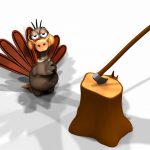
While I keep the list short this year, it wouldn't be U.S. Thanksgiving without my writing about gratitude, and why some tech company's executives, employees, and partners should prostrate and pray "Thanks".
Let's start off with Google, which continues a great run that started with Larry Page's return as CEO in April 2011. If he's not all smiles this Turkey Day, someone should slap that man aside the head. I could tick off a hundred things for which he should give thanks. For brevity's sake, so you can get back to the big game and bigger bird, I select some things that might not come to mind.
5 things you might not think Apple should be thankful for
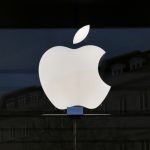
Today, Americans celebrate Thanksgiving and Hanukah, a rare occurrence they overlap. We reflect on the things we feel -- or should be -- grateful. Ahead of the holiday meal I served up "13 things for which Google gives thanks" and colleagues Wayne Williams and Alan Buckingham "5 things to be thankful for in Windows 8.1" and "5 products I'm thankful for", respectively. I would be remiss ignoring Apple.
The fruit-logo company is unique in techdom, inventing or reinventing several hugely successful product categories. Most companies have one- or two-hit wonders. Apple has a string of smash hits, like the rarest of iconic musicians. The Beatles come to mind, because of their 50th-anniversary and name shared -- you know, Apple Records. The many things for which the company should be thankful are obvious, so let's just dispense with those and get to items other list-makers, if there are any, likely will overlook. I present Apple's thankful things from least to most important.
Recent Headlines
Most Commented Stories
BetaNews, your source for breaking tech news, reviews, and in-depth reporting since 1998.
Regional iGaming Content
© 1998-2025 BetaNews, Inc. All Rights Reserved. About Us - Privacy Policy - Cookie Policy - Sitemap.